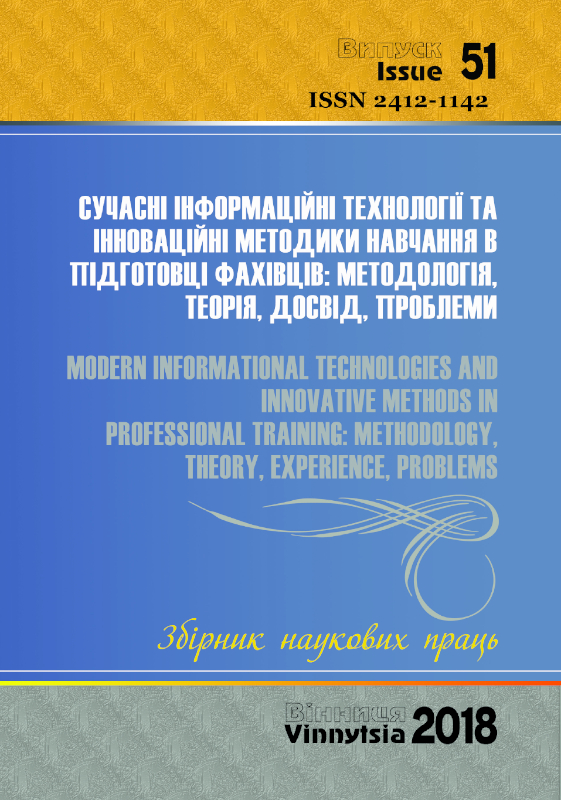VARIETIES OF THE ENGLISH LANGUAGE AS AN IMPORTANT CONTENT COMPONENT OF PROFESSIONAL LINGUISTICS DISCIPLINE
Keywords:
global English, English language variety, accent, dialect, linguistic subject, course syllabus, intercultural communication competence, verbal, para-verbal and non-verbal communication componentsAbstract
The authors attempted to prove the necessity of teaching English considering the world-wide
tendency to position it as a global language in the professional training of future foreign language teachers and
philologists. The emphasis is placed on the importance to develop students’ awareness of the diversity of accents and
dialects used by English-speaking communities around the world. Relying on the results of pedagogical researches,
available methodological instructions by foreign and Ukrainian professionals, as well as on the acquired teaching
experience, it has been proposed to study the theoretical and applied aspects of the English language varieties within
one of the core subjects, that is “Linguistic Studies of the English-speaking Countries”. One of the newly completed
units of the course syllabus, based on the approach to teaching English as a global language, has been presented
taking into account the diversity of its forms. The following effective types of classroom and out-of-class activities,
aimed at the development of intercultural communicative competence, have been outlined: brainstorming, discussion, explanatory monologue, analyzing monologue, oral presentation, making up dialogues in the variety, acting out real-
life communications, writing articles, essays and short stories, creating lessons for teaching someone the variety, translating texts from a dialect, explaining the meaning of stylistic devices. It has been concluded that success of
foreign language communication depends not on the mastered language forms but on the acquired intercultural
communication skills.
Downloads
References
зб. наук. пр. – Слов’янськ : ДДПУ, 2013. – Вип. 61. – С. 203-217.
Galloway N. Incorporating Global Englishes into the ELT classroom [Online source] / N. Galloway, H. Rose // ELT Journal, 2018. – Volume 72. – Issue 1. – P. 3–14. – Access mode : https://academic.oup.com/eltj/article/72/1/3/3064440.
Kachru B. World Englishes: approaches, issues and resources [Online source] // Language Teaching. –Cambridge: CUP, 1992. – Volume 25. – Issue 1. – pp. 1–14. –
Access mode: www.cambridge.org/core/journals/languageteaching.
Kirkpatrick A. World Englishes: Implications for International Communication and English Language Teaching /
A. Kirkpatrick. – Cambridge : Cambridge University Press, 2007. – 257 p.
McArthur T. The English Languages / T. McArthur. – Cambridge University Press, 1998. – 247 p.
Seargeant Ph. English as a language for international development: Policy assumptions and practical challenges /
Ph. Seargeant, E. J. Erling // Dreams and Realities: Developing Countries and the English Language. – Britih Council, 2011. – Paper 12. – P. 2–21.
Downloads
Published
Issue
Section
License
Copyright (c) 2018 О. Мартинюк, Г. Лисак

This work is licensed under a Creative Commons Attribution 4.0 International License.

